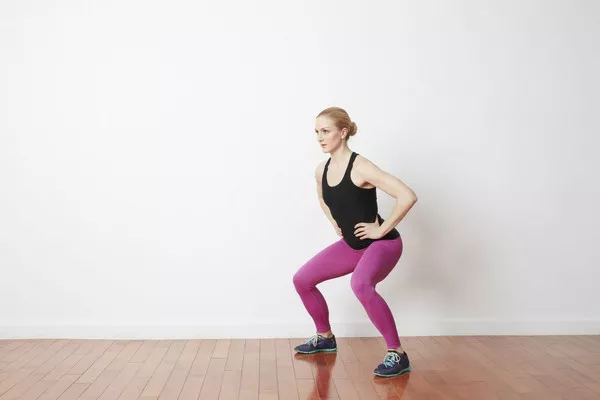Protein, often hailed as the king of nutrients, plays a pivotal role in achieving weight loss goals. It’s not just about shedding pounds; it’s about losing fat while preserving lean muscle mass. In this comprehensive guide, we delve into the world of protein for weight loss, exploring why it’s essential, how it aids in slimming down, and which protein sources are the best allies in your weight loss journey.
SEE ALSO: High Protein Diet in Weight Loss: Myths & Realities
Why Protein Matters in Weight Loss
Before we explore the best protein sources for weight loss, let’s understand why protein is a crucial component of a successful weight loss plan:
1. Satiety and Appetite Control
Protein has a remarkable ability to keep you feeling full and satisfied. When you consume protein-rich foods, they trigger the release of hormones like leptin, which signal to your brain that you’re full, reducing the urge to overeat. This can help you control your appetite and reduce overall calorie intake.
2. Thermic Effect of Food (TEF)
Protein has a higher thermic effect compared to fats and carbohydrates, meaning it requires more energy (calories) to digest and metabolize. This results in a slight increase in calorie expenditure, supporting weight loss efforts.
3. Muscle Preservation
During weight loss, the goal is to lose fat while preserving lean muscle mass. Protein is crucial for this as it provides the amino acids necessary for muscle maintenance and repair. A higher protein intake can help prevent muscle loss, keeping your metabolism active and aiding in fat loss.
4. Blood Sugar Control
Consuming protein can help stabilize blood sugar levels, preventing rapid spikes and crashes that can lead to increased hunger and cravings. This steadier blood sugar control supports better appetite management.
5. Reduced Cravings
Protein-rich foods are often more satisfying than sugary or highly processed options. Including protein in your meals and snacks can reduce cravings for unhealthy, calorie-dense foods.
The Best Protein Sources for Weight Loss
Not all proteins are created equal when it comes to weight loss. The best protein sources for shedding pounds are those that offer a combination of high protein content, essential nutrients, and minimal unhealthy fats and calories. Here are some of the top protein sources for your weight loss journey:
1. Lean Poultry
Protein Content: Skinless chicken breast contains approximately 31 grams of protein per 3.5-ounce (100-gram) serving.
Benefits: Chicken breast is exceptionally lean and low in calories. It’s a versatile option that can be grilled, baked, or sautéed, making it a staple in many weight loss diets.
2. Fish
Protein Content: Fish like cod and haddock offer around 20-25 grams of protein per 3.5-ounce serving. Fatty fish like salmon provide approximately 25 grams.
Benefits: Fish is rich in high-quality protein and heart-healthy omega-3 fatty acids. It’s a low-calorie option that’s perfect for those looking to shed pounds while enjoying a variety of flavors.
SEE ALSO: 6 Kinds of Fishes Highest in Protein (Plus Nutritional Benifits and Prepare Methods)
3. Lean Beef
Protein Content: Lean cuts of beef, such as sirloin or tenderloin, provide approximately 31 grams of protein per 3.5-ounce serving.
Benefits: Beef is a great source of protein, iron, and zinc. Opt for lean cuts and prepare them with minimal added fats to keep your calorie intake in check.
4. Greek Yogurt
Protein Content: Greek yogurt packs a protein punch with approximately 10 grams of protein per 100 grams (3.5 ounces).
Benefits: Greek yogurt is not only a protein source but also rich in gut-friendly probiotics. It’s a satisfying snack or breakfast option that can help control cravings.
5. Eggs
Protein Content: One large egg contains around 6 grams of protein.
Benefits: Eggs are nutrient-dense and an excellent source of protein. They can be enjoyed in various ways, from boiled and scrambled to poached.
SEE ALSO: Protein Content in Boiled Eggs: A Nutritional Guide
6. Legumes
Protein Content: Legumes like lentils, chickpeas, and black beans offer approximately 7-9 grams of protein per 100 grams.
Benefits: Legumes are not only a protein source but also rich in fiber, which enhances feelings of fullness. They are a suitable option for vegetarians and vegans.
7. Tofu
Protein Content: Tofu contains around 8 grams of protein per 100 grams.
Benefits: Tofu is a versatile plant-based protein source. It’s low in calories and can be used in various savory and sweet dishes.
8. Whey Protein
Protein Content: A scoop of whey protein powder typically provides 20-25 grams of protein.
Benefits: Whey protein is highly concentrated and convenient, making it an excellent choice for those seeking to boost their protein intake. It’s often used in smoothies, shakes, or as an ingredient in recipes.
9. Cottage Cheese
Protein Content: Cottage cheese contains roughly 11 grams of protein per 100 grams.
Benefits: Cottage cheese is a protein-rich dairy product that’s low in fat and calories. It can be enjoyed on its own or incorporated into recipes for added creaminess and protein.
10. Quinoa
Protein Content: Quinoa provides about 4 grams of protein per 100 grams (cooked).
Benefits: Quinoa is a unique plant-based protein source that’s also a complete protein, meaning it contains all essential amino acids. It’s versatile and can be used as a base for various dishes.
SEE ALSO: 21+ Foods High in Protein, Low in Calories
Q: Is There a Recommended Protein-to-Calorie Ratio for Weight Loss?
There isn’t a one-size-fits-all recommended protein-to-calorie ratio for weight loss because individual dietary needs can vary significantly based on factors like age, gender, activity level, and overall health. However, protein intake is a crucial component of a successful weight loss plan, and there are some general guidelines that can help you determine an appropriate protein-to-calorie ratio.
1. Adequate Protein Intake
Aim to consume enough protein to support muscle maintenance and satiety. In general, protein intake between 15% to 30% of your daily calorie intake is a common recommendation. However, this range can be adjusted based on individual factors.
2. Calorie Deficit
Weight loss occurs when you consume fewer calories than you expend. To create a calorie deficit, you’ll need to reduce your calorie intake or increase your physical activity. A typical goal for safe and sustainable weight loss is around 500 to 1,000 calories less than your maintenance level per day, which can result in a gradual weight loss of about 1 to 2 pounds per week.
3. Balanced Diet
While protein is essential, it’s important to maintain a balanced diet that includes carbohydrates, healthy fats, and a variety of fruits and vegetables to ensure you’re getting all the necessary nutrients.
4. Individual Needs
Individual protein requirements can vary widely. Athletes and individuals engaged in regular strength training or exercise may require higher protein intake to support muscle repair and growth. Older adults may also benefit from slightly higher protein intake to help preserve muscle mass.
5. Consult a Professional
It’s highly recommended to consult with a registered dietitian or healthcare professional to determine your specific protein and calorie needs for weight loss. They can consider your unique factors and help create a personalized plan that aligns with your goals and overall health.
Conclusion
Protein is your trusted companion on your weight loss journey. It not only supports satiety and muscle preservation but also offers a range of essential nutrients. By incorporating lean protein sources like poultry, fish, lean beef, and dairy products into your diet, you can harness the power of protein to achieve your weight loss goals. Remember that a balanced diet, regular physical activity, and portion control are essential components of a successful weight loss plan. So, embrace the protein-powered path to a healthier, fitter you.
[inline_related_posts title=”Related Topics” title_align=”left” style=”list” number=”3″ align=”none” ids=”1924,1921,1841″ by=”categories” orderby=”rand” order=”DESC” hide_thumb=”no” thumb_right=”no” views=”no” date=”yes” grid_columns=”1″ post_type=”” tax=””]


































